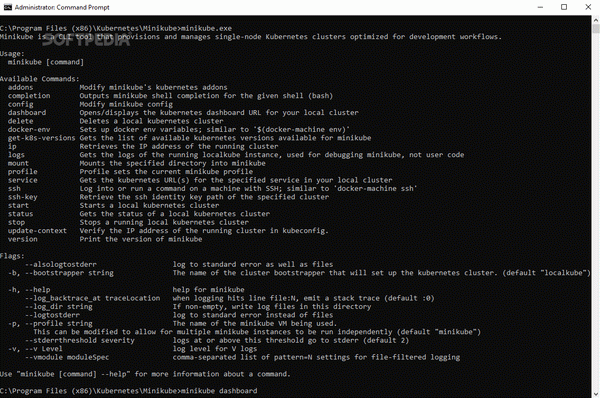Minikube 1.9.2 / 1.10.0 Beta 1 Activation Code Full Version
Built to help you run apps in both public and private cloud environments as smoothly as possible, Kubernetes is a robust automation platform capable of efficiently deploying, scaling, and managing app containers.
To wrap it up, Kubernetes is a local development environment that allows you to deploy apps, scale them on the fly, add new features, and limit hardware usage. If up until now, everything sounds good, then you definitely be interested in knowing more about Minikube.

Download Minikube Crack
| Software developer |
Kubernetes
|
| Grade |
5.0
759
5.0
|
| Downloads count | 6411 |
| File size | < 1 MB |
| Systems | Windows 7, Windows 7 64 bit, Windows 8, Windows 8 64 bit, Windows 10, Windows 10 64 bit |
In short, Minikube is an extensive command line tool that enables you to launch a single-node cluster in a virtual machine and, thus, allowing you to take Kubernetes for a spin locally - probably the easiest and safest way to try out Kubernetes.
First off, start by deploying the utility on your computer, a task that's reasonably straightforward thanks to its streamlined installer. Before we go even further, it's worth pointing out that there's a comprehensive documentation section available on the Minikube's official GitHub repository.
With that out of the way, you can now start exploring what this tool has to offer by running it within a Command Prompt window. Once launched, you're provided with a comprehensive list of commands that help you start, stop, or delete the service, as well as display the Kubernetes dashboard for your local cluster.
Whenever in difficulty, don't forget that Minikube Serial features a comprehensive help section built within, readily accessible by using the "-h" flag. It's also worth mentioning that you have to install Kubectl before you can actually use Minikube Serial. This is also a command line utility that allows you to run commands against Kubernetes clusters so, naturally, it's fairly important that you get familiar with its functionality beforehand.
Since its launch in mid-2014, Kubernetes has known a fairly substantial adoption rates and is slowly carving a reputation as the defacto standard for most companies that need an efficient solution for managing containerized applications.
Minikube probably had a substantial part to play and will continue to do so by providing everyone with a hassle-free way of running Kubernetes clusters locally with the least amount of hassle.
